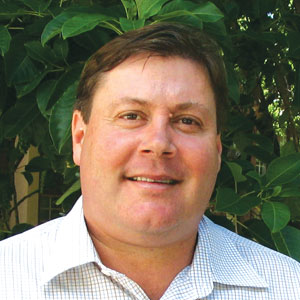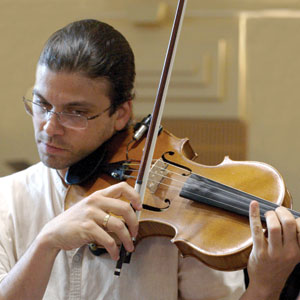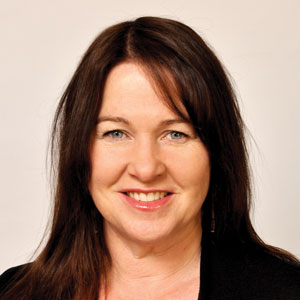Amid the traffic and the heat of the city, attending WOMADelaide, in the middle of a cultural and arts season the locals have dubbed ‘Mad March’, is like descending into a better world.
Huge Morton Bay fig trees stretch shady boughs out to greet visitors – their impressive roots curve across the park. The grass is long and soft. The ambience is simply a relaxing green, interrupted only by big bright flags, not of many nations, but of many creations.
The fusion of foods from many different cultures produces a kind of single delicious ‘world food’ aroma. It is served on compostable plates. The beer and wine is mostly local, reliably good and all containers are recycled.
People are smiling, children are laughing, and couples are hand-paired and swaying to the beats.
But as you float through a crowd of colourful happy pants and kaftans, beige Birkenstocks and bamboo fibre, it’s important not to forget the key demographic here is middle to upper middle class. This is where the influential people go to let it all hang loose.
It is not the kind of place you would expect to find someone proselytising the end of civilisation as we know it … but then again maybe it is just the sort of place for that message to be heard.
In a marquee tucked under the trees are the Planet Talks, sponsored by UniSA and bringing key national and international speakers together at the festival to discuss the future of the environment, the messages ranged from hopeful to gloomy.
The line-up was impressive and included local and international ‘names’ – warrior for the environment as the front man of Midnight Oil and former politician Peter Garrett; international barrister Polly Higgins; futurist Dr Richard Slaughter; and others from media personalities and academics to entrepreneurs and scientists.
Where the speakers found most agreement was in the need to do more to protect the planet, its plants and animals, its ecosystems and ultimately its human inhabitants.
 For UniSA urban ecologist Professor Chris Daniels (pictured), who took part in a panel discussion on the three great threats to biodiversity, the experience was important.
For UniSA urban ecologist Professor Chris Daniels (pictured), who took part in a panel discussion on the three great threats to biodiversity, the experience was important.
A long-term advocate for citizen science, he says being part of the conversation in wider society is the most important step to bring about change.
“Some people will assume we were preaching to the converted and that might be half right, but if scientists stop talking to the public we are in very big trouble,” Prof Daniels says.
“I’ve been involved in some amazing projects with the community where we encourage people to simply observe and record the world around them, the birds, the marsupials, spiders and frogs.
“That engagement alone gives people an insight into how ecosystems work. So they begin to see more clearly how a drought can eradicate a species, for example.
“The more removed we are from nature, the easier it is to disconnect. The more we disconnect, the easier it is to care less, see less and understand less about how the environment operates.
“It is basic psychology really; if you feel disconnected from something, you don’t trouble much about what happens to it.”
Prof Daniels believes scientists must remain part of the conversation.
“As a scientist I can influence through research and teaching, but when I engage with people at events like the Planet Talks, or through media and social media, I can extend my reach beyond the lecture theatre and groups of like-minded academics to a much broader field of engagement,” he says.
 Fellow speaker, environmentalist, musician and founder of Green Music Australia (GMA) Tim Hollo (pictured) is convinced the marrying of world music and discussion around the thorny issue of climate change makes perfect sense.
Fellow speaker, environmentalist, musician and founder of Green Music Australia (GMA) Tim Hollo (pictured) is convinced the marrying of world music and discussion around the thorny issue of climate change makes perfect sense.
“The role of music, or for that matter art, in shaping culture has been demonstrated over and again throughout history,” Hollo says.
“One of music’s most powerful roles is in forming identity. While music can’t change people’s minds, it can help to shift people’s values and priorities, and encourage engagement and action.
“What it also does is influence feelings and emotions which are much more powerful drivers of attitude change than facts and figures.”
A new organisation, GMA is working in the music scene to lead sustainable initiatives from LED stage lighting to replacing CD cases with cardboard and encouraging WOMADelaide-style recycling regimes at more and more concerts.
While Hollo says his mood swings wildly between being optimistic and pessimistic about the impact of climate change, he is clear that public engagement through events like the Planet Talks is worthwhile. He says it was heartening that over the course of the four-day music festival, 1700 people attended the sessions.
“If we talk to people who are interested and encourage them to get more active and involved, to take steps in their own lives or reach out to others, that is far more powerful than speaking to the same number of people who are completely disinterested and hoping to get a handful of them to start to think about climate change action,” Hollo says.
 Associate Professor at UniSA’s Ehrenberg-Bass Institute for Marketing Science Dr Anne Sharp (pictured) believes organisers of the Planet Talks are thinking laterally about how they market the green message.
Associate Professor at UniSA’s Ehrenberg-Bass Institute for Marketing Science Dr Anne Sharp (pictured) believes organisers of the Planet Talks are thinking laterally about how they market the green message.
“As a marketer, delivering your message in a variety of ways is crucial,” Dr Sharp says.
“The single biggest challenge marketers face is capturing the attention of their audience.
“People rarely consciously reject brands or messages – it is far more a case of them being screened out or not even noticed. We are bombarded with thousands of messages in our daily lives and so we have become very good at ignoring marketing efforts to simply be able to get through the day.”
She says the Planet Talks format recognises that people vary in how they like to receive information and engage with issues.
“What better setting than parklands to talk about the environment – where people can experience first-hand the benefits of green space?” Dr Sharp says.
“It makes a much greater impact than hearing the same talk in an artificially lit lecture hall or reading it from a computer screen at your kitchen table.”
Dr Sharp says we can’t underestimate how big a thing it is to ask people to change behaviours.
“Despite a great effort to introduce compostable cutlery and plates at WOMAD, I watched person after person throw their plates and utensils into the hard rubbish bin rather than the compostable bins provided,” she says. “They were just doing what they have always done when out at events and using (plastic) cutlery.”
As habitual creatures, much of what people do, from what we cook to where and when we walk the dog, is done effectively on autopilot. Dr Sharp says it requires a very conscious and sustained effort to break habits and change ingrained behaviours.
“It is not as simple as putting the infrastructure in place, we also have to tell people and build lots of links in their mind for new knowledge to sink in so that when they are in the situation again, the information we want them to know comes to mind easily,” Dr Sharp says.
“The placement, organisation and structure of the Planet Talks encourage people to think about issues in more detail and to engage with them more than they would if they were just passively reading. That does help to achieve long-term behaviour and attitude change.”